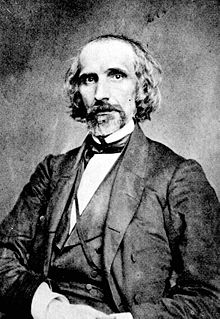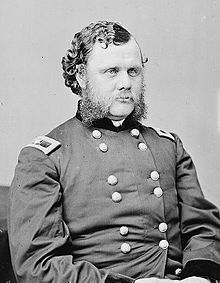 |
| General Samuel Jones |
HEADQUARTERS DEPARTMENT OF WESTERN VIRGINIA,
Dublin, February 14, 1864.
Honorable JAMES A. SEDDON,
Secretary of War:
SIR: I received yesterday your letter of the 11th, in reply to mine of the 4th instant. You misunderstood my meaning if you supposed I desired the President to retain me in command of this department when he thought the interest of the service would be promoted by removing me. I knew that efforts had been made by men of local
influence in the department to have me removed, and I had good reason
to believe they had represented that a change would be agreeable to me. I
only desired that the order relieving me should not be issued under any
misapprehension. I was quite sure, and so expressed myself to others,
that the President wound not remove me unless he was convinced that the best interests of the service would be thereby promoted.
I recognize to the fullest extent that it is the right and duty of the President
to assign officers to duty in the way best calculated to promote the
public interest. He is the proper and rightful judge in all such cases,
and I have the utmost confidence in his judgment. And whilst I sincerely
regret that my administration of the trust confided in me has to given
more general satisfaction, I have no disposition whatever to complain
because the President has determined to confide it to another, whom he
thinks better adapted to secure the confidence of the people and promote
the essential ends of the command.
I sincerely hope the distinguished officer and statesman who had been
selected to relieve me will succeed in the accomplishment of the end
proposed.
I may be permitted to say that I entered upon this command with reluctance, as I believe you and the President
know, and my chief reason for reluctance was the general impression
that not one of the many officers who had preceded me, not even General
Lee, had given satisfaction to the people, and I doubted if any one who
administered the affairs of the department with an eye single to the
general good of the service, regardless of local interests and influence, could give satisfaction to those who assume to express the opinion and wishes of the people.
Though it seems I have not the confidence of the people, I have the
satisfaction of knowing that whilst I have contributed largely,
considering the strength of my command, to re-enforce the Army of
Northern Virginia, and was somewhat instrumental in checking the advance of the enemy through East Tennessee,
when that department was abandoned, my own department has experienced no
serious reverse, and that my troops now occupy all the territory they
occupied when I entered on the command, more than fourteen months since.
I await the orders of the President, feeling confident that he will not assign me to any duty which I will not perform cheerfully and to the best of my ability.
With my thanks for the very kind terms in which you have communicated to
me the President's intentions, I have the honor to be, with great
respect, your obedient servant,
SAM. JONES,
Major-General.
Official Records, Series I., Vol. 33, Part 1, Page 1172.
Jone was certainly gracious in his response to being reassigned in favor of Breckinridge. But he was able to make the very interesting, for a Confederate general, boast that his troops occupied all the territory they did when he assumed his command.







.JPG/250px-Cape_dec29-07_(23).JPG)


